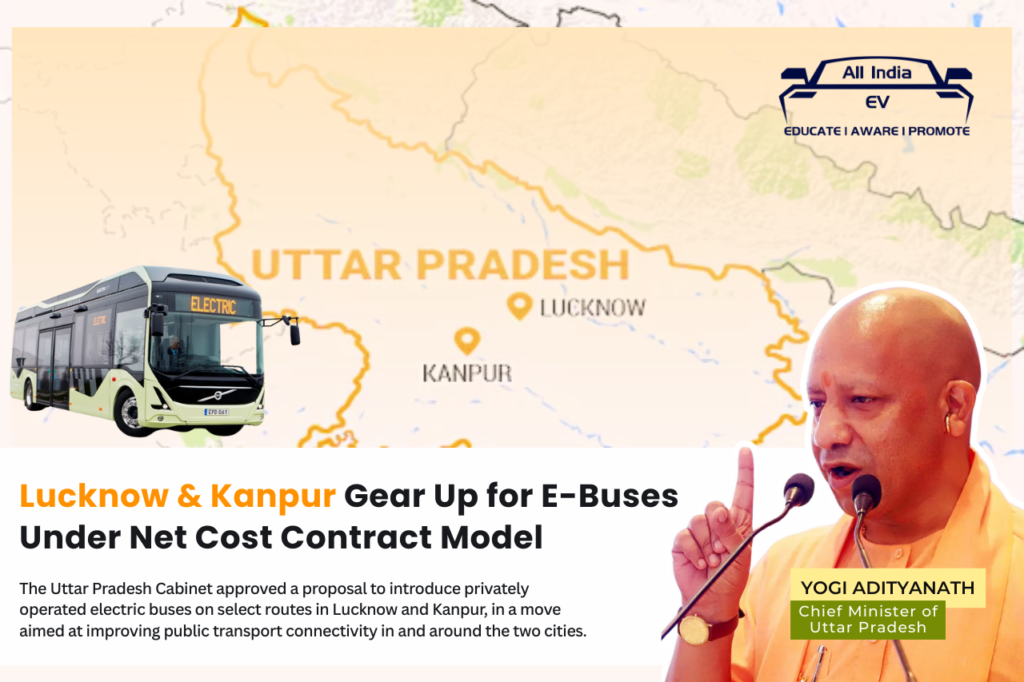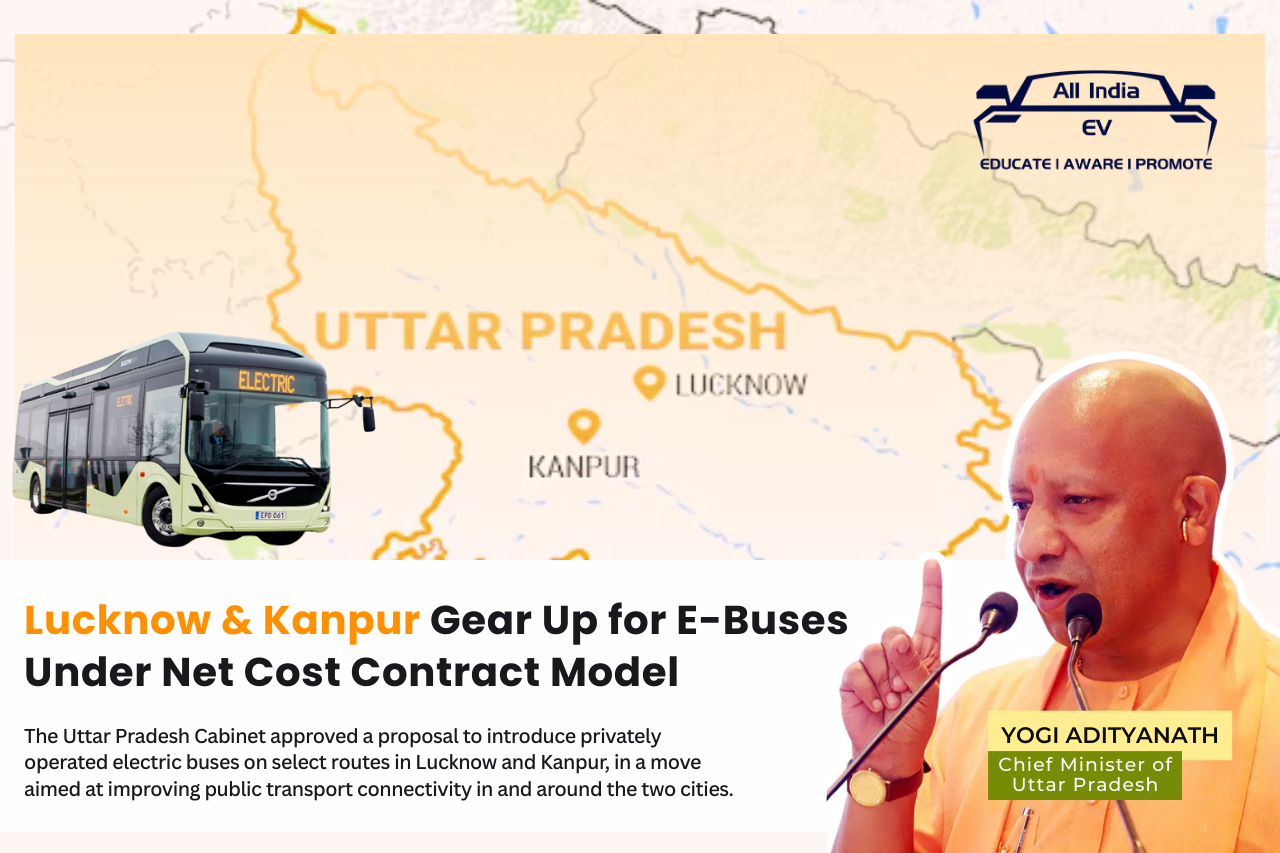
UP Govt Approves Rollout of E-Buses in Lucknow and Kanpur on Net Cost Contract Model to Promote Clean Energy and Modern Urban Transport
In a major push toward sustainable urban transport, the Uttar Pradesh government has approved the introduction of electric buses under the Net Cost Contract (NCC) model in Lucknow and Kanpur, with plans to extend the initiative to adjoining towns in the near future.
Pilot Project for Clean and Modern Transport
The decision was taken during a state cabinet meeting held on Tuesday, where officials emphasized the importance of environmental protection, clean energy, and modern urban mobility solutions. The project is expected to serve as a pilot for scaling up electric public transport across the state.
Private Operators to Play Key Role
Speaking after the meeting, State Power Minister A.K. Sharma confirmed that private operators will run e-buses on 10 designated routes in Lucknow and Kanpur. Under the NCC model, only selected private operators will be allowed to manage operations, ensuring accountability and service quality.
The contract period will run for 12 years from the date of commercial operation. During this time, private operators will be responsible for purchasing, manufacturing, supplying, maintaining, and setting up all related infrastructure for the e-buses.
Fare Collection and Tariff Oversight
One of the key features of the NCC model is the transfer of fare collection responsibilities to private operators. While operators will manage day-to-day collections, the government will retain control over fare and tariff fixation.
“The rates will be fixed as per the agreement to ensure convenient and affordable transport for passengers,” Sharma said, adding that operators would be required to obtain the necessary route licenses from the Transport Department and the Regional Transport Authority (RTO/RTA).
A Step Toward Greener Cities
With air pollution being a pressing issue in Uttar Pradesh’s urban centers, the rollout of electric buses marks a significant stride toward reducing vehicular emissions and promoting clean mobility.
Officials believe that the NCC model will not only encourage private sector participation but also create a financially sustainable framework for scaling up electric bus adoption across the state.
Broader Impact
The introduction of e-buses in Lucknow and Kanpur is expected to:
- Cut down greenhouse gas emissions in high-traffic zones
- Provide affordable and reliable transport options for urban commuters
- Set the groundwork for electric mobility infrastructure in other major cities of Uttar Pradesh
- By combining government regulation with private execution, the NCC model aims to strike a balance between service efficiency, cost-effectiveness, and sustainability.








